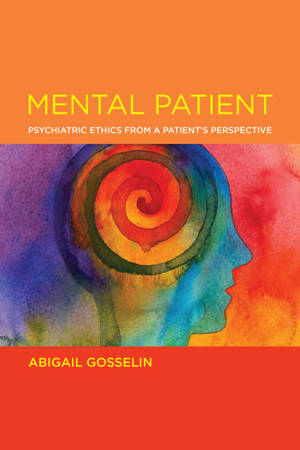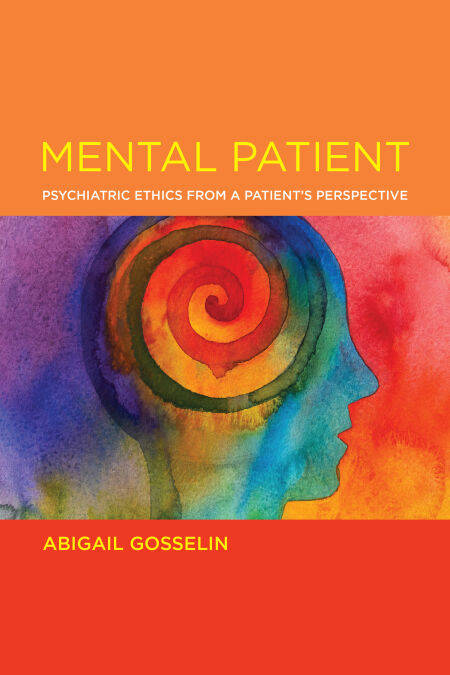
Bedankt voor het vertrouwen het afgelopen jaar! Om jou te bedanken bieden we GRATIS verzending (in België) aan op alles gedurende de hele maand januari.
- Afhalen na 1 uur in een winkel met voorraad
- In januari gratis thuislevering in België
- Ruim aanbod met 7 miljoen producten
Bedankt voor het vertrouwen het afgelopen jaar! Om jou te bedanken bieden we GRATIS verzending (in België) aan op alles gedurende de hele maand januari.
- Afhalen na 1 uur in een winkel met voorraad
- In januari gratis thuislevering in België
- Ruim aanbod met 7 miljoen producten
Zoeken
€ 44,35
+ 44 punten
Omschrijving
A philosopher who has experienced psychosis argues that recovery requires regaining agency and autonomy within a therapeutic relationship based on mutual trust.
In Mental Patient, philosopher Abigail Gosselin uses her personal experiences with psychosis and the process of recovery to explore often overlooked psychiatric ethics. For many people who struggle with psychosis, she argues, psychosis impairs agency and autonomy. She shows how clinicians can help psychiatric patients regain agency and autonomy through a positive therapeutic relationship characterized by mutual trust. Patients, she says, need to take an active role in regaining their agency and autonomy—specifically, by giving testimony, constructing a narrative of their experience to instill meaning, making choices about treatment, and deciding to show up and participate in life activities.
Gosselin examines how psychotic experience is medicalized and describes what it is like to be a patient receiving mental health care treatment. In addition to mutual trust, she says, a productive therapeutic relationship requires the clinician’s empathetic understanding of the patient’s experiences and perspective. She also explains why psychotic patients sometimes feel ambivalent about recovery and struggle to stay committed to it. The psychiatric ethics issues she examines include the development of epistemic agency and credibility, epistemic justice, the use of coercion, therapeutic alliance, the significance of choice, and the taking of responsibility. Mental Patient differs from straightforward memoirs of psychiatric illness in that it analyses philosophic issues related to psychosis and recovery, and it differs from other books on psychiatric ethics in that its analyses are drawn from the author’s first-person experiences as a mental patient.
In Mental Patient, philosopher Abigail Gosselin uses her personal experiences with psychosis and the process of recovery to explore often overlooked psychiatric ethics. For many people who struggle with psychosis, she argues, psychosis impairs agency and autonomy. She shows how clinicians can help psychiatric patients regain agency and autonomy through a positive therapeutic relationship characterized by mutual trust. Patients, she says, need to take an active role in regaining their agency and autonomy—specifically, by giving testimony, constructing a narrative of their experience to instill meaning, making choices about treatment, and deciding to show up and participate in life activities.
Gosselin examines how psychotic experience is medicalized and describes what it is like to be a patient receiving mental health care treatment. In addition to mutual trust, she says, a productive therapeutic relationship requires the clinician’s empathetic understanding of the patient’s experiences and perspective. She also explains why psychotic patients sometimes feel ambivalent about recovery and struggle to stay committed to it. The psychiatric ethics issues she examines include the development of epistemic agency and credibility, epistemic justice, the use of coercion, therapeutic alliance, the significance of choice, and the taking of responsibility. Mental Patient differs from straightforward memoirs of psychiatric illness in that it analyses philosophic issues related to psychosis and recovery, and it differs from other books on psychiatric ethics in that its analyses are drawn from the author’s first-person experiences as a mental patient.
Specificaties
Betrokkenen
- Auteur(s):
- Uitgeverij:
Inhoud
- Aantal bladzijden:
- 308
- Taal:
- Engels
- Reeks:
Eigenschappen
- Productcode (EAN):
- 9780262371223
- Verschijningsdatum:
- 12/12/2022
- Uitvoering:
- E-book
- Beveiligd met:
- Adobe DRM
- Formaat:
- ePub

Alleen bij Standaard Boekhandel
+ 44 punten op je klantenkaart van Standaard Boekhandel
Beoordelingen
We publiceren alleen reviews die voldoen aan de voorwaarden voor reviews. Bekijk onze voorwaarden voor reviews.









